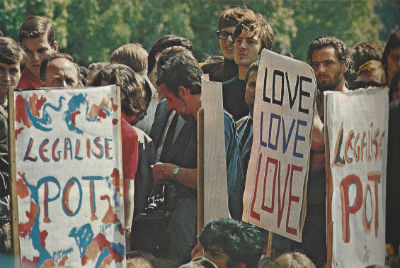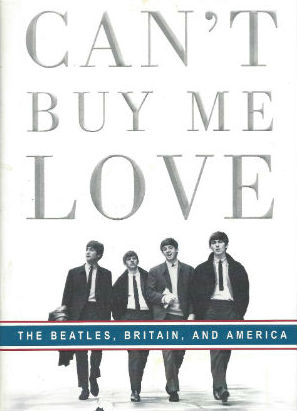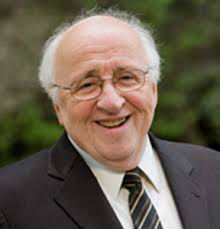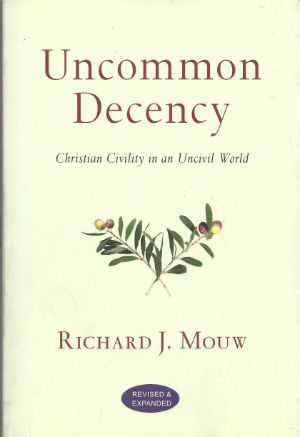Looking Back: The Summer of Love
By Neil Earle
 In spite of much earnest sincerity 1967's Summer of Love took some unfortunate turns.
In spite of much earnest sincerity 1967's Summer of Love took some unfortunate turns.June 1967 is being widely heralded as the release of the Beatle’s Sgt. Pepper album and the kickoff for commemorating the Summer of Love fifty years ago. Most of us remember this unusual time when motley-colored youth swarmed San Francisco and John, Paul, George and Ringo crooned to the world the oh-so-catchy intro
“Love, love, love
Love, love, love,
Love, love, love…All you need is Love.”
The four mop-tops sang a lot about love, even if most of it revolved around what British critics called “American drug-store pop.” Remember? There Was “Love Me Do,” “She Loves You”, “Can’t Buy me Love,” “You’ve Got to Hide Your Love Away,” and a host of sub-themed hits revolving around physical hormonal attraction as in their first trans-Atlantic megahit “I want to Hold Your Hand.”

The Beatles’ Search
Music critic Steve Turner, who knew the band well, writes in The Gospel according to the Beatles how George Harrison visited Haight-Ashbury in San Francisco that August of 1967 expecting to find peace love and happiness. Instead he found teens strung out on drugs, going nowhere in particular and looking to him for guidance.
The experience turned him off LSD and sent him down other paths, notably Indian mysticism. Without being too harsh, 50 years later it seems disillusionment was endemic to the Summer of Love…and to the music of Sgt. Pepper, which is still hailed as a masterpiece album for its innovative juxtapositions and social commentary.
In the end Turner gives the only analysis that a Christian writer could offer about the summer of 1967. After 1965 the Beatles turned serious and moved from teeny-bop love to what calls the “the altruistic, universal love spoken of in religion…This was love as the primary force behind creation. The apostle John declared ‘God is love.’ The Beatles effectively turned this around and said, ‘Love is God’…Love was a pathway to the divinity within us. We could save ourselves.”
As Turner elaborated, the Beatle creed “Love is God and its inside all of us” is a far cry from the premeditated sacrificial love displayed by Christ on the cross to die for our salvation and restore us to our divine origins in creation.
In effect the Beatles in their various experimentations were searching for the fulfillment that God promises those who turn to him. Most popular music and even pop culture makes that mistake. They are searching but on their own terms. Biblical love is the opposite. It springs from a God who searches for us and begins to endow us with the love that lasts, the love that regulates the universe and holds everything together, as the poet Dante saw in the 1300s.
 Biblical love teaches suffer long with people vs. being a hothead.
Biblical love teaches suffer long with people vs. being a hothead.From Saul to Paul
One of those whom God sought out and enlisted to teach the world about love was a Jewish radical named Saul (Acts 9). He grew up hating the new Christian movement with its weak powerless Messiah dying on a cross and being defeated, as he thought, by Rome. God sought out Saul on one of his “hit” missions against the church in Damascus and this proved to be one of the most radical conversions in history. The Beatles toyed with religion and even sometimes with the Christian versions of it – after all, John and Paul first met at a church garden party – but Saul, now renamed Paul (“a wee little fellow”) became the greatest evangelist in history.
In that role he found that Love was indeed the greatest force in the universe, the Ingredient X that could bind togther churches he had started of very different style and compositions.
In a letter to one of his congregations in Corinth he took it upon himself to define Love. For the sake of my readers and for those who love the early Beatle music – like my wife and I – and its exuberant optimism, let’s have a look, let’s try to understand Love through the pen of St. Paul.
Paul built on Jesus’ own four teachings to deflect conflict and minimize violence by not taking our defense into our own hands quite so easily (turn the other cheek), meet someone suing you with a “give them your shirt” attitude, going beyond what is strictly required (the go two miles principle) and a generally outgoing attitude of giving help to people with no prior claim over us. That’s from Matthew 5:39-42 whose prescriptions if followed would reduce half the tensions of life from the get-go.
Paul zeroes in what the Greek Bible describes as agape love in 1 Corinthians 13:4-7. Agape love goes beyond mere affection (“phileo”) to mirror the love expressed between the Father rand the Son prior to creation (John 17:24).Creation itself represents an “overflowing of love” our theologians tell us. This is why some call agape, divine love.
 Richard Mouw
Richard MouwThis is Love
To his Corinthian church members who were carnal, politicking, jealous and ripping the church apart Paul offered his compressed, eloquent definition of hat true love is.
“Love is patient and kind” (1 Corinthians 13:4, ESV). Patience here refers to an infinite capacity for endurance and self-restraint. The Biblical patriarch Abraham showed this kind of mature love when he offered his nephew Lot the best piece of the land in order to prevent a range war from breaking out (Genesis 13). That’s the practicality of unselfish love. The Bible is full of examples of the highest levels of self-restraint. The King James Version calls it “long suffering” and there is much teaching behind this pithy phrase – yes some people will make you suufer long. But Biblical patience is self-restraint expressed in the key of “kindness,” another great New Testament word that in the Greek (“chrestos”) comes close to the name of Christ himself.
 Fuller theologian Richard Mouw has consistently called Christians back to first principles.
Fuller theologian Richard Mouw has consistently called Christians back to first principles.“Love does not envy or boast; it is not arrogant or rude” (verse 4). Envying and boasting, arrogance and rudeness – why these are the stuff of our nightly news. In our hair-trigger over-communicated world it is easy to stir up people’s worst traits. Theologian Richard Mouw exposes so-called Christians who, he calls all-or-nothing crusaders. On every issue their shrill and negative attacks can be counted to make a tense situation worse. As President of Fuller Seminary Mouw became noteworthy for reaching out to Christian groups often alienated from the mainstream. Here is his sound advice based on 1 Corinthians 13: “For starters, concentrate on your own sinfulness and the other person’s humanness. We become more civil by gaining a more honest picture of ourselves and others” (Uncommon Decency, page 52).
The Spirit of Charleston
That is humility and humility changes things. The sisters of a young man named James who was killed in a cruel senseless racist crime two-three years ago shocked the courtroom by asking that the death penalty not be applied in this case. They did it in the name of their brother who was a devout Christian. Their example was so startling it made the nationally televised news. Similarly the Christians who had eight of their number killed at a Bible Study in Charleston, SC declared their lack of hatred and hostility toward the confused young man accused of the crime. This also played well on the nightly news which is too often a catalogue of negative and depressing events. Have we forgotten all this so quickly? It seems that even our often jaundiced media can recognize real Christianity when they see it. All thanks and praise to those Christian folk who let the Holy Spirit work through them so powerfully in these cases.
“Love…is not irritable or resentful” Paul continued. Love is concerned rather to give itself rather than assert itself, writes Pastor Leon Morris. It does not stew over its own hurts, legitimately inflicted or not. We all know that kind of thinking makes us miserable and yet, there is something magnetic about sin that makes certain attitudes hard to resist. Just before that Paul had written “love does not insist on its own way.” Oh, boy, what a change that one principle would make in our society. Jesus did not insist on his own way when he fought against the excruciating human temptation to avoid the cross and simply bowed instead in humble submission before his Father, “Thy will be done.”
Of course Jesus is the gold standard for true Biblical love and many of his followers have trodden that path after him. Whether it was St. Patrick answering the call to return to the Irish pirates who had enslaved him or the young theologian Dietrich Bonheoffer returning to lead the resisting church in Hitler’s Germany, many across the centuries have followed the command to not insist on their own way. They are credits to the church and to our high calling to reflect “the love of God shed abroad in our hearts by the Holy Spirit” (Romans 5:5). Which none of us who claim the name of Christ will ever do perfectly.
“Love…does not rejoice at wrongdoing but rejoices with the truth.” Oh how common it is today to pursue every bit of gossip and innuendo about others on mass and social media but... love takes the higher path. “Let them prove to me they are ornery” one church pastor said about people out slandering him. That’s a healthy forward-leaning attitude to go through life with. Sometimes just by believing the best about others we can change their behavior. Love is not interested in the keeping of accounts – with “saving stamps” as one marriage counselor put it (He said, She said). Agape can forget the past and bury it in the furthest sea as one of the prophets wrote.
Three Powerful Affirmations
Finally Paul rounds out this potent section with a 4-fold sequence of powerful affirmations like an athlete driving hard to the goal line – “Love bears all things, believes all things, hopes all things, and endures all things.” The musical Les Miserables took the world by storm because at its heart it was about forgiveness, all stemming from the loving act of a kind priest who covered up for the thief, Jean Valjean who stole his priceless church silverware. That one loving action changed Jean Valjean and his story can be repeated a thousand-fold in real life. A Navy flyer told CBS how had to pray two months to learn to forgive his North Vietnamese captors. But he won through to victory. Seeing people from the God View, believing they can ne better in the future, bearing with their worst traits, hoping for their reformation – in the board room, the living room, the cabinet room – these qualities of the Holy Spirit allow us to truly endure all the slings and arrows our antagonists sometimes throw at us.
Most people are their own worst enemies, we don’t have to aid and abet them in their sad and short-sighted self-indulgence. Maybe they will come round. That’s what love hopes and believes. Maybe one day we will have a summer of love based upon these principles. At least it’s something to hope for.